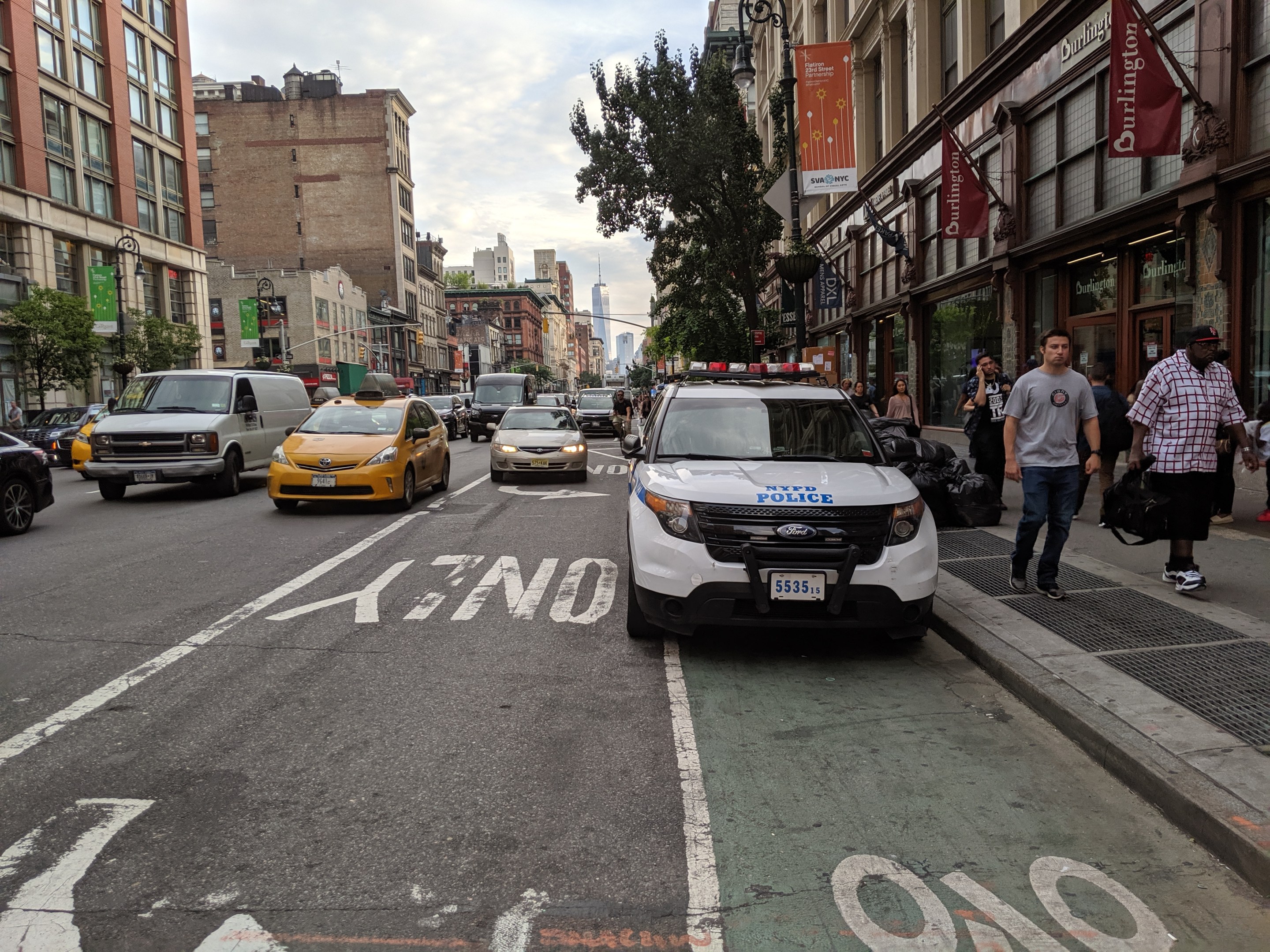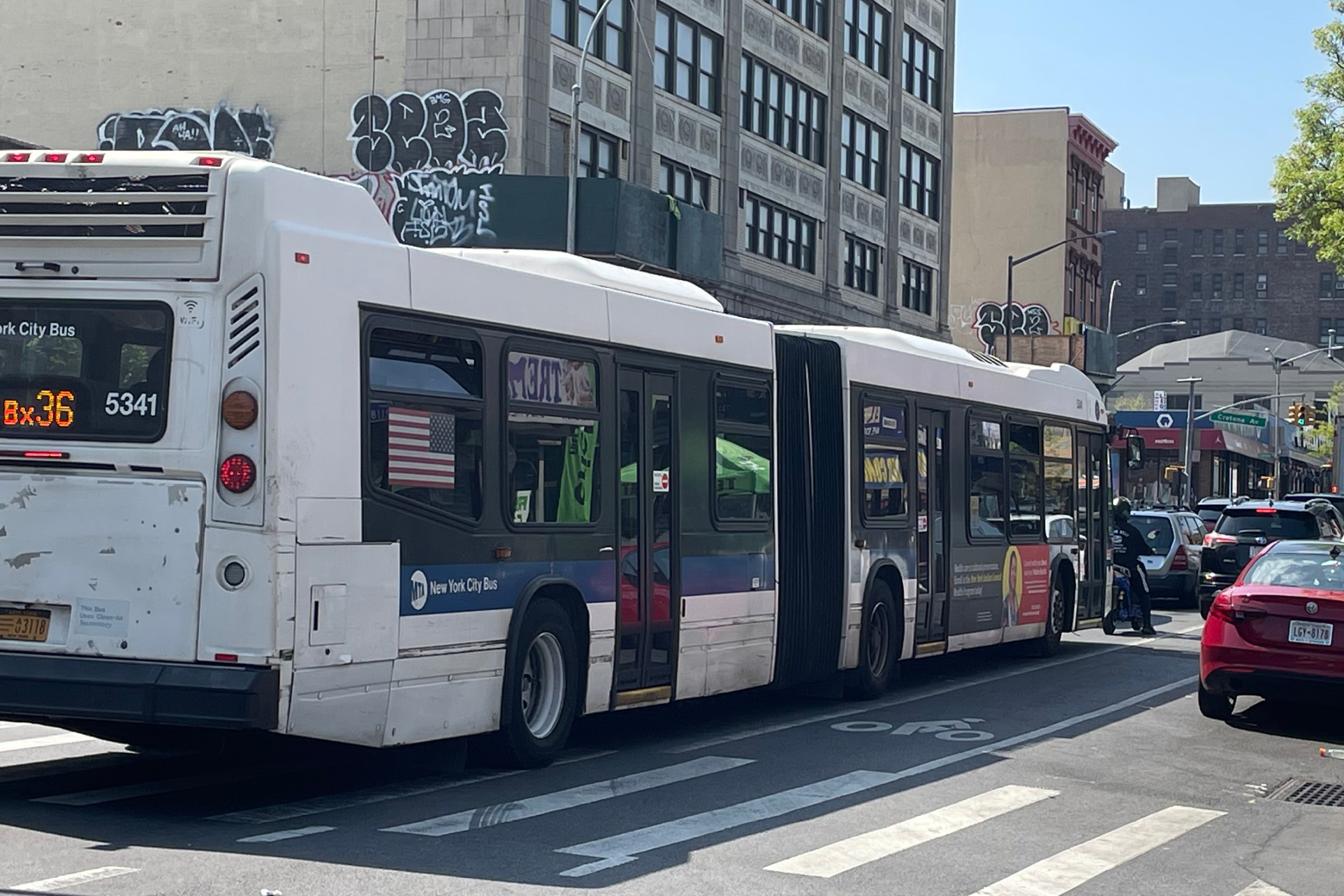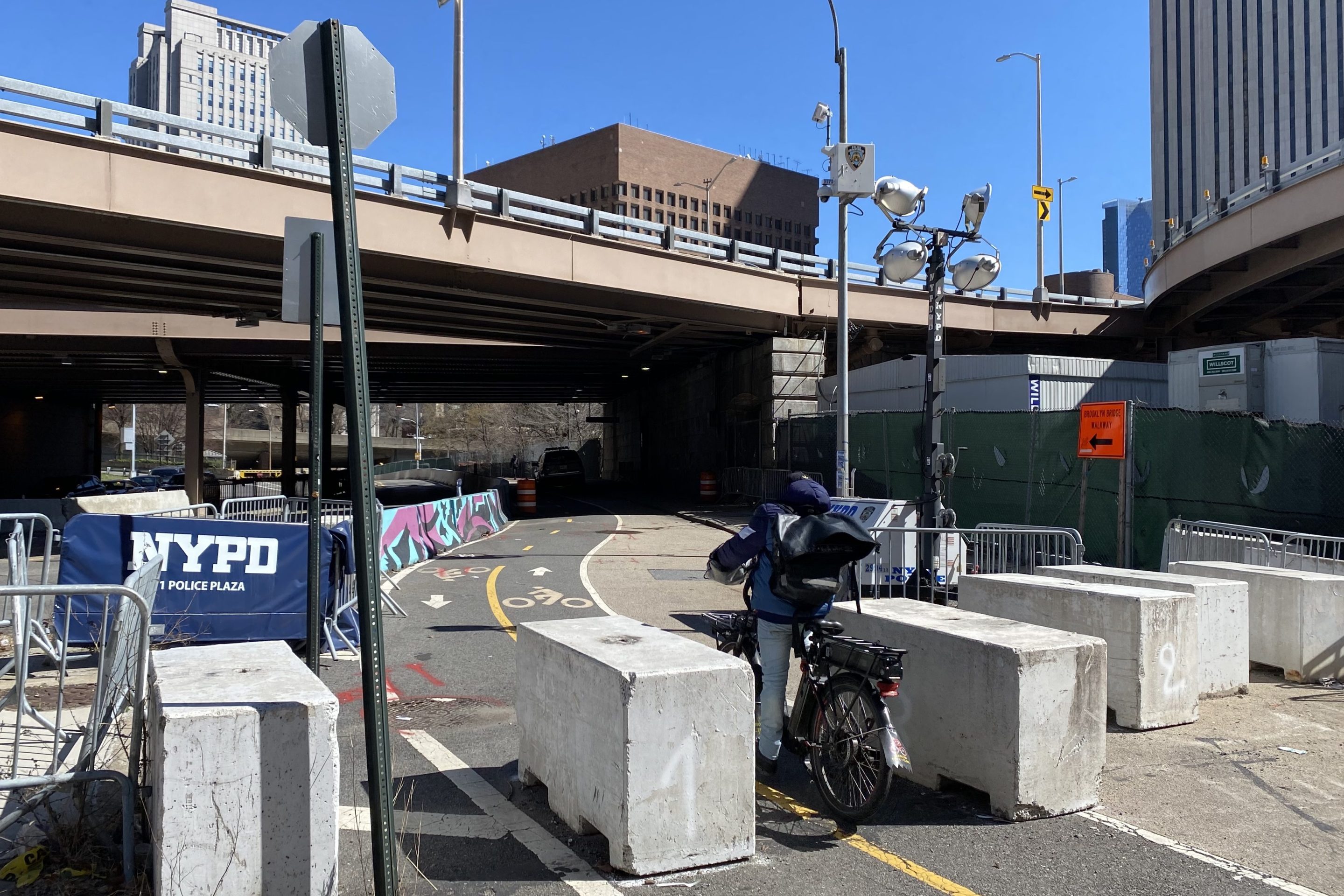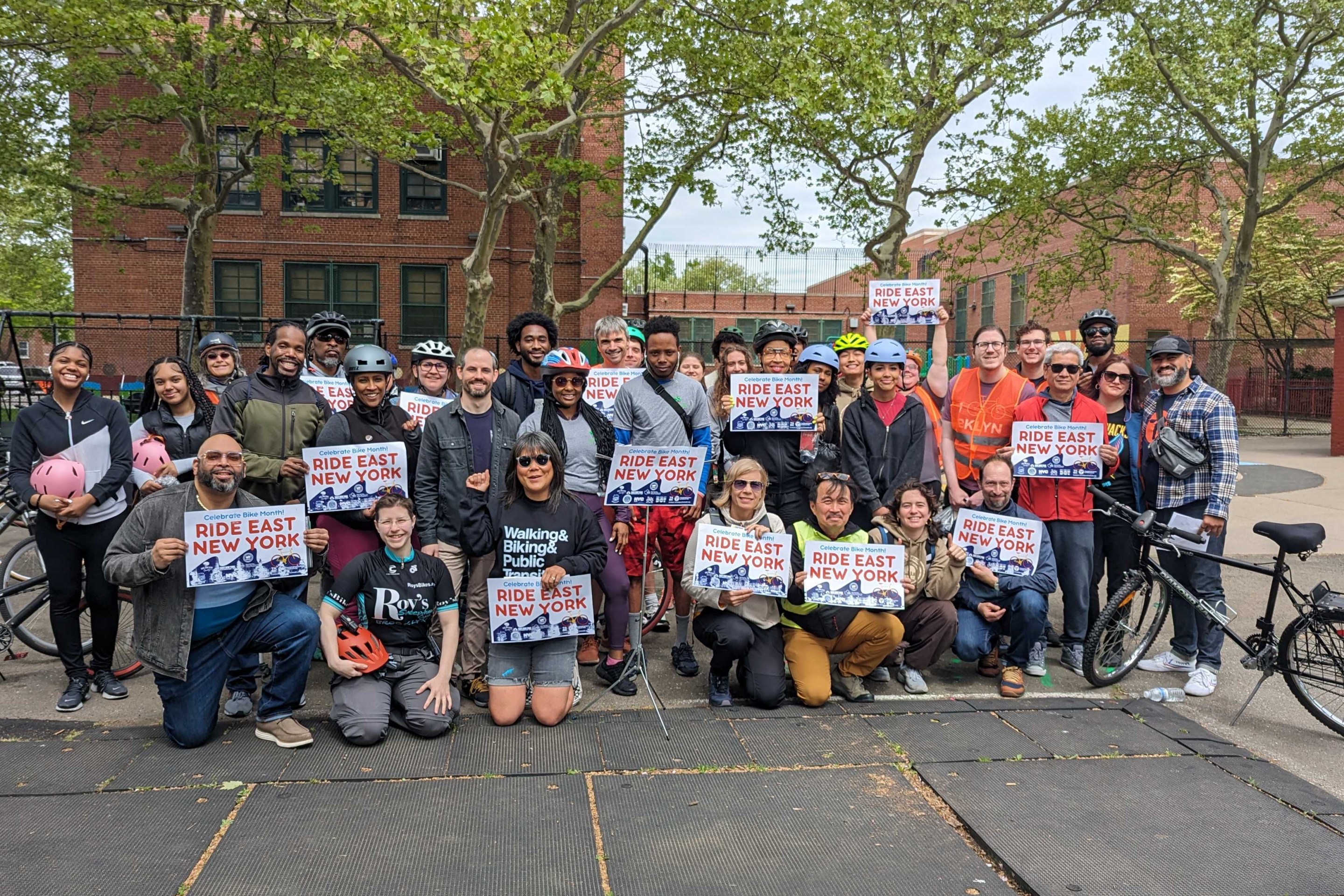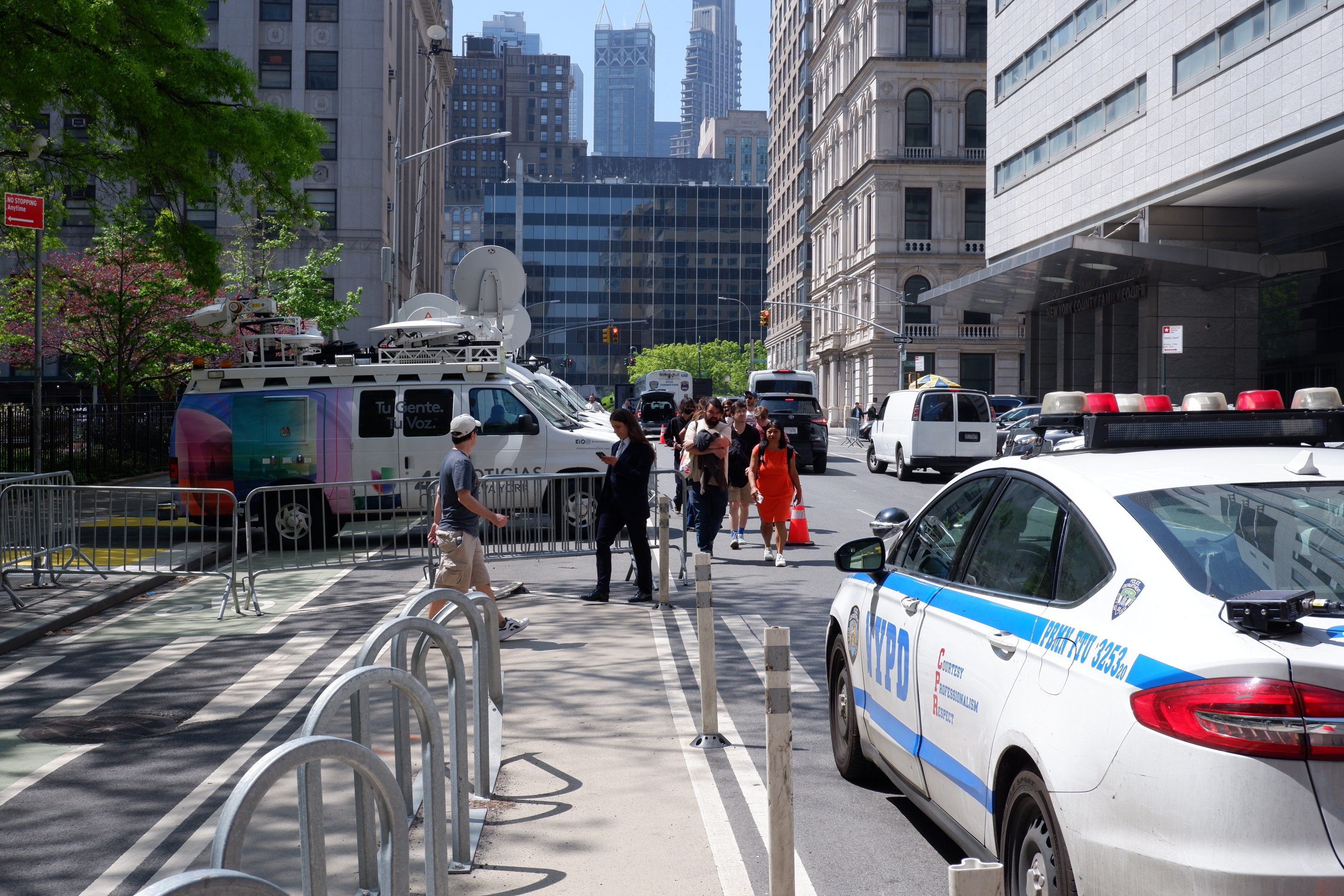The campaign to remove the NYPD from traffic enforcement and return street oversight to the Department of Transportation gained momentum this week as an influential local panel voted to support the move.
Manhattan Community Board 4, which includes such wealthy neighborhoods as Chelsea and Hudson Yards, voted during its June 22 executive meeting to support the return of the NYPD’s Transportation Bureau to the DOT, citing years of failure to protect vulnerable road users.
“NYPD has been an unreliable partner in pursuing the shared goals of calming the traffic and reducing traffic injuries and fatalities,” leaders of the board wrote to Mayor de Blasio, Council Speaker Corey Johnson and other local elected officials, in informing them that the board's executive committee had “voted to support the return of the Bureau of Transportation from the NYPD to DOT, where it could be better integrated and aligned with the city’s goals of calming vehicular traffic, achieving Vision Zero, and expanding the use of alternate modes of transportation.” Traffic enforcement moved to the NYPD from the DOT in 1996.
The board said the letter follows one it sent in 2018, highlighting what it said was the poor job of the NYPD’s notoriously understaffed Collision Investigation Squad to investigate fatal crashes.
“In our experience, NYPD CIS under the highway district has been falling short of its mandate. A prior letter dated Cct. 18, 2018 regarding collision investigation captures many of our ongoing concerns: Officers on the scene of collisions in our district have been reluctant or slow to notify CIS and have been prone to making victim-blaming comments prior to a full investigation,” the June 23 letter states.
The letter comes on the heels of a report this week from Transportation Alternatives, which calls on the de Blasio administration to remove the NYPD from its oversight of traffic enforcement — not only to make streets safer from crashes, but also to protect Black and Brown New Yorkers, who are often targeted by police and disproportionately victims of police brutality.
Streetsblog recently reported that of the 440 tickets police issued to people for biking on the sidewalk in 2018 and 2019, 374 — or 86.4 percent — of those where race was listed went to Black and Hispanic New Yorkers. The wildly disproportionate stats followed another report showing that cops issued 99 percent of jaywalking tickets to Black and Hispanic people in the first quarter of this year.
Streetsblog earlier this month documented the ways in which the NYPD has failed as an ally of Vision Zero, although DOT Commissioner Polly Trottenberg insists that New York's Finest remains her agency's valued "partner."
One local safe-streets advocate, Jehiah Czebotar, who lives in Hells Kitchen, which is in CB4, said he's seen first hand how poorly police officers respond to street-safety issues and even often make things more dangerous by parking on sidewalks and in bike lanes.
"NYPD has been unresponsive to our community refusing to keep crosswalks clear, making it unsafe and often impossible to cross our streets with our children," Czebotar said.
The Manhattan civic panel cited the work of author Radley Balko, who argues in his book "Rise of the Warrior Cop" that traffic enforcement should be separate from other police activity because traffic stops are "generally not criminal encounters, but have become pretexts for racial bias and overtime bilking that can quickly escalate, resulting in injury, death, and/or unwarranted incarceration."
Manhattan Borough President Gale Brewer, a recipient of the letter, said she that would support the reversion of the traffic bureau to the DOT.
“I do think there’s an argument that [the DOT is] more likely to focus on prevention," Brewer said. "We all want to have less people killed in terms of bicyclists and pedestrians, and there is an argument to be made to go back to DOT as long as there is good coordination.”
DOT did not immediately respond to a request for comment, but de Blasio responded last week to TA's report during a daily press briefing:
Some people are proposing taking some units out of the NYPD, putting them in another agency, funding them exactly the same way, having them do exact same work. That may have merit, but I don’t want it to be misconstrued. There are some things I think can be done better by civilians than by NYPD, and some things done better by NYPD than civilians. We’ve got to work out which is which, but that doesn’t implicitly mean a budget savings.
Some are just calling for a pure budget reduction to the NYPD. So when you say something like traffic enforcement or anti-crime, that work has to happen, it’s going to happen with the same people in different ways potentially, but it has to happen. So I don’t want there to be a misunderstanding about that. I think the anti-crime point is, are there some things that the same people might do it, the same mission has to be done, but they might do it a different way. Yeah, we have to look at all of that.
The full board of CB4 will vote to ratify the call on July 22.
